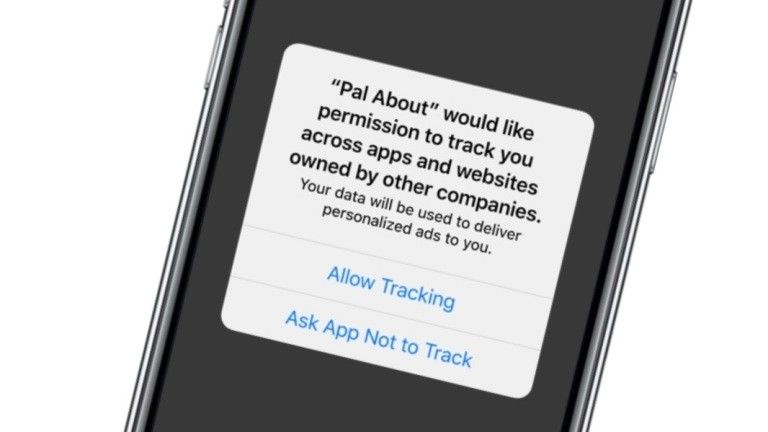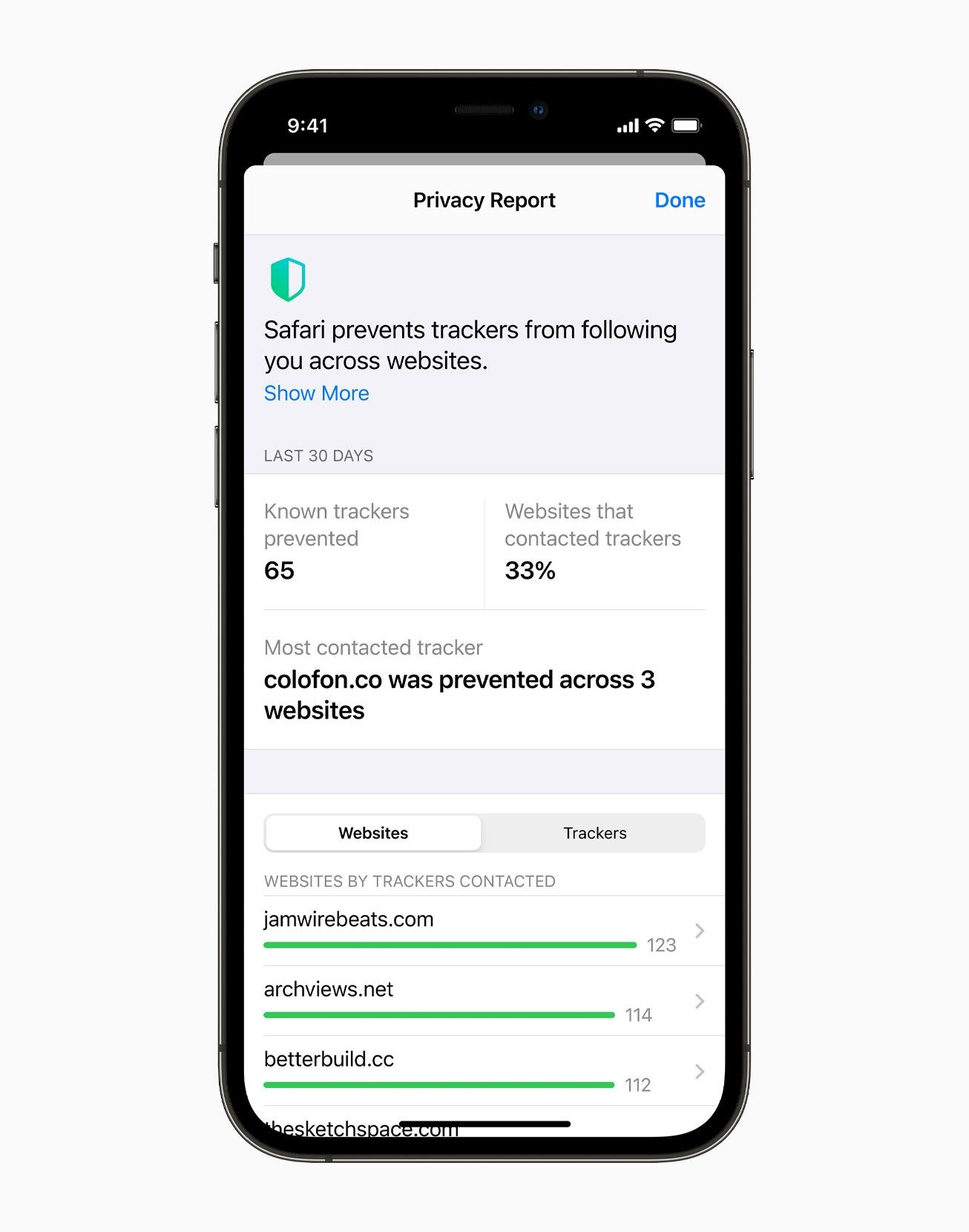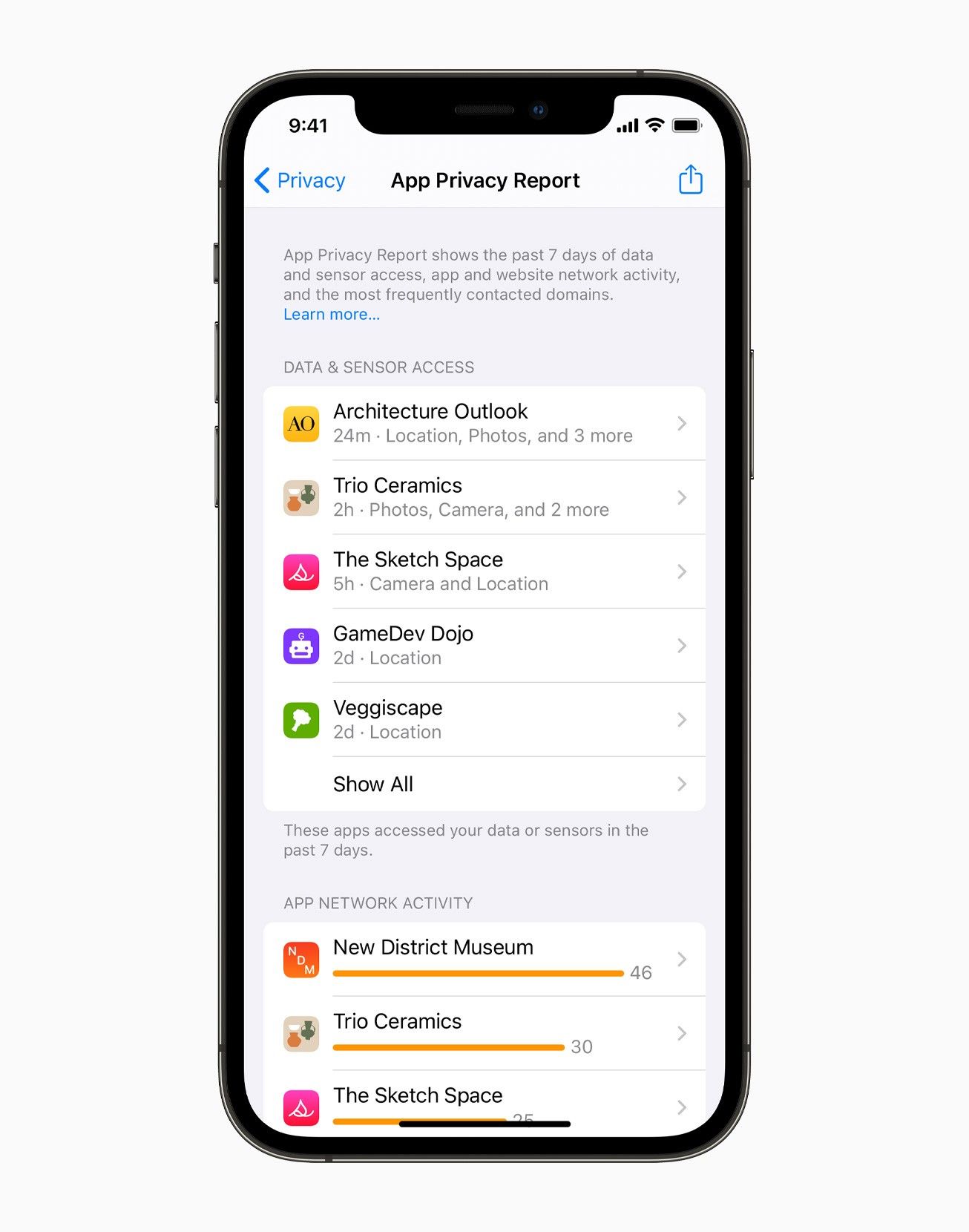08 September 2021
Apple’s privacy war rattles Facebook
The privacy war between Apple and Facebook continues to heat up. Apple launched a clever ad in May 2021, which highlighted how compromised user privacy has become and, although Apple didn’t explicitly state Facebook anywhere in the ad, it was fairly obvious who they were referring to via the app, Pal About, featured in the short video.

Image: Privacy on iPhone, Tracked, Apple commercial.
Prior to the Pal About ad we told you how to ready your Facebook advertising measurement for Apple iOS 14.5+ privacy enforcement in an effort to help you prepare for what was about to come with iOS 14.5 in terms of new privacy restrictions, which are bundled into what’s known as the App Tracking Transparency (ATT) framework.
Facebook has clearly been worried about the implications of ATT for some time, having taken out full page ads in the likes of The Wall Street Journal, New York Times, and The Washington Post as covered by the Verge in Dec 2020. And as part of their own mitigation strategy for ATT, Facebook presented their own informational splash screen to users before the Apple privacy prompt.
However, now that iOS 14.5 has been live for a couple of months, we thought it was a good time to review just how much impact ATT has had on Facebook advertising campaigns and the knock-on impact for Facebook based advertisers.
So, what do the numbers say?
Starting with opt-in tracking stats for all iOS apps (not just Facebook’s iOS app). It turns out when you give users choice around tracking consent, the numbers are quite low.
-
Flurry reports that only ~21% of users now allow app tracking (as of August 2021)
-
Bloomberg states that people give iOS apps permission to track their behaviour just 25% of the time
While early indicators show that Apple ATT change has been massively positive from a user privacy and choice perspective (with Apple’s Tim Cook referring to user feedback as having been tremendous), on the flip side what’s good for user privacy, is not so good for Facebook revenue and its own advertisers ability to effectively measure ad campaign performance.
Why is this bad for Facebook and what does Apple’s ATT actually do?
When users opt-out of tracking, ATT removes the identifier for advertisers, known as IDFA (Identifier for Advertisers). This unique user identifier previously allowed apps to track user activity across apps and websites accessed via iPhones. You can think of IDFA as a form of digital fingerprint for your device (unique to your phone). When you answer no to the new “Allow App to Track” iOS 14.5+ prompt, the IDFA will no longer report a unique IDFA code, but instead appear as a string of zeros, in effect hiding your identity.
The flow-on effect is that advertisers can no longer accurately measure which ads are working, since conversion data can not always be tied back to a specific ad or campaign. So far, different advertisers are reporting different results in a post ATT world. And we’ve seen reports of ranges between 42% - 64% of sales data being accurately captured when compared to the period prior to the ATT update.
Retargeting capabilities are being curtailed
Campaign performance measurement is not the only thing that’s been impacted, but the ability to accurately retarget users who may have expressed interest in an advertisers product or service is also affected. Retargeting has historically been enabled via identifiers such as IDFA. Advertisers would use these IDs to determine who had seen their ads, interacted with their website or app, but not yet made a purchase, like when you add an item to cart, but abandon completing checkout. Retargeting allows advertisers to target these users again with repeated advertising in an effort to coax those users into going through with a transaction.
The end result of these ATT changes are that they will make Facebook ads less targeted and less effective for advertisers, meaning they will likely need to spend more dollars for the same results as before. This could result in advertisers cutting budgets or allocating money to other advertising networks, mediums or channels, especially those platforms that can more easily demonstrate the value they bring to advertisers.
How is this impacting Facebook earnings?
Initially ATT was expected to launch in early Q1 2021, but didn’t actually go live until May 2022, which means it’s still too early to tell exactly how these changes will impact Facebook’s bottom line. Facebook’s July’s 2021 earnings report didn’t report any significant declines as of yet, but some analysts had estimated declines in revenue by as much as 7% earlier this year, based on the earlier iOS 14.5 roll out dates.
What does Louder recommend advertisers to do?
-
If you refer to our article, you can leverage Facebook’s own Aggregated Event management protocol. This will give you some insight back for iOS users. In some cases Facebook will attempt to provide an estimate of performance for iOS devices (if you trust their estimates of course).
-
Review Facebook’s Conversion API. This allows you to upload conversion data to Facebook to match back to Facebook users. The downside? It requires additional work to prepare your sales data to send to Facebook and then handle that data once it’s returned. However, Louder can always help with this if you get stuck.
-
Consider server-side tagging, which Facebook now supports. Server-side tagging requires a bit more effort to deploy initially, but we think it has real merit given the way the privacy landscape is unfolding at the moment and is worth investing in going forward.
Where does the industry and Facebook go from here?
We don’t think ATT is going away anytime soon, given the uptick in adoption from users who have exerted their ability to block app tracking on iOS. It seems like a well received feature that most users are happy to have access to.
Given that Facebook doesn’t own any mobile platform of their own (eg: Android or iOS), we see the road ahead as being a tricky for Facebook to navigate. According to this Bloomberg article, a Facebook company spokesperson stated that “The company is also looking into technology that would let Facebook deliver personalised ads based on targeting data stored on the user’s device, meaning Facebook wouldn’t need to access it.”
This approach has similar hallmarks to what Google is proposing with its FLoC technology, but looking at the privacy road ahead and the Apple iOS 15+ release schedule, it looks like iOS 15+ is destined to pack even more privacy features such as:
-
Transparency around when apps access your contact list
-
How often apps make requests to third party endpoints
-
How your data is being shared via an App privacy report

Image: Apple iOS 15+ press release notes.
Not only will iOS 15+ provide details around how data is being shared, but also:
-
How frequently apps access your camera
-
How frequently apps access your location data
-
How frequently apps access your photos

Image: Apple iOS 15+ press release notes.
After reviewing these iOS15+ reports will users proactively block access to these items? Will that further hinder Facebook’s ability to use on device targeting data? Not to mention new privacy legislation may become another barrier. Ireland has just slapped Facebook with a €225m fine as a result of GDRP based regulation for not telling users how it shared WhatsApp data with Facebook.
Is Facebook privacy and small business compatible?
Facebook has stated that it believes smaller advertisers and businesses may be hurt most by all these privacy related changes, and on one hand we can somewhat agree with this assessment, given that smaller advertisers are likely to have lower conversion volume data and less user data to draw upon.
Having low data volumes is particularly challenging when using tools like Facebook’s conversion API, since queries below certain thresholds may be more limited (refer to our article on walled gardens), thus providing the advantage to bigger advertisers with bigger budgets.
However, we also feel that protecting user privacy is important and Facebook’s claims about small business impact are more than likely motivated more by self interest than standing up for small business itself. After all, if Facebook was truly worried about small business, they could make changes to their own advertising platform to tilt the scales in favour of small business. If they really wanted to..
As to what happens next, we expect to learn more over the coming months and we are planning to run some tests of our own including a review of the effectiveness of Facebook’s server-side tagging solution via GTM.
Stay tuned for more updates as they become available and if you’d like help navigate these uncertain waters, feel free to contact us.

